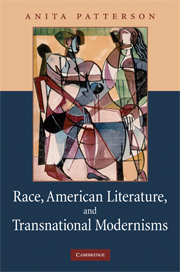Book contents
- Frontmatter
- Contents
- Acknowledgments
- Introduction. Towards a comparative American poetics
- Chapter 1 Transnational topographies in Poe, Eliot and St.-John Perse
- Chapter 2 Hybridity and the New World: Laforgue, Eliot and the Whitmanian poetics of the frontier
- Chapter 3 From Harlem to Haiti: Langston Hughes, Jacques Roumain and the avant-gardes
- Chapter 4 Signifying modernism in Wilson Harris's Eternity to Season
- Chapter 5 Beyond apprenticeship: Derek Walcott's passage to the Americas
- Epilogue
- Notes
- Bibliography
- Index
Chapter 5 - Beyond apprenticeship: Derek Walcott's passage to the Americas
Published online by Cambridge University Press: 22 September 2009
- Frontmatter
- Contents
- Acknowledgments
- Introduction. Towards a comparative American poetics
- Chapter 1 Transnational topographies in Poe, Eliot and St.-John Perse
- Chapter 2 Hybridity and the New World: Laforgue, Eliot and the Whitmanian poetics of the frontier
- Chapter 3 From Harlem to Haiti: Langston Hughes, Jacques Roumain and the avant-gardes
- Chapter 4 Signifying modernism in Wilson Harris's Eternity to Season
- Chapter 5 Beyond apprenticeship: Derek Walcott's passage to the Americas
- Epilogue
- Notes
- Bibliography
- Index
Summary
INTRODUCTION
In 1985, Derek Walcott recalled Eliot's importance for his own coming of age as a poet. “I used to write every day in an exercise book,” he said, “and when I first wrote I wrote with great originality. I just wrote as hard and as well as I felt. I remember the great elation and release I felt, a sort of hooking on to a thing, when I read … Eliot, and everyone.” Like Harris, whose New World modernism demands self-surrender to every possible current of intercultural influence, Walcott spoke of his “complete apprenticeship, a complete surrender” to the impersonality of modernist craft.
One reason Walcott's apprenticeship to American poetry has been neglected is that many of the works that illustrate this phase of his career were not included in selected and collected volumes. Early critics and reviewers, while sympathetic to Walcott's predicament as a young colonial poet, tended to dismiss the poems of apprenticeship to Eliot as derivative of “European literary models.” As a corrective to this, pathbreaking studies by Rei Terada and John Thieme called attention to the significance of Walcott's American influences and, more recently, Charles Pollard, Laurence Breiner and Paula Burnett have examined Walcott's selective reshaping of Eliot's poetics. But none of these critics explains in detail how Walcott's relations with American antecedents from Poe to St.-John Perse figure in his emerging self-conception as a New World poet.
- Type
- Chapter
- Information
- Race, American Literature and Transnational Modernisms , pp. 160 - 183Publisher: Cambridge University PressPrint publication year: 2008

